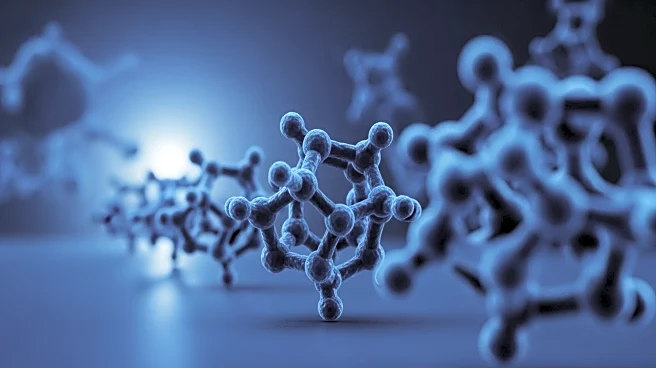What's Happening?
Recent research has revealed that doping Prussian blue nanozymes with small cations such as lithium, sodium, and potassium paradoxically suppresses their activity. Despite inducing minor structural refinements,
potassium did not significantly alter the iron coordination number and spin states. However, cesium-doped Prussian blue exhibited superior peroxidase-like activity compared to undoped and potassium-doped variants, demonstrating higher current density and accelerated hydrogen peroxide reduction. The study utilized chemicals of analytical grade sourced from Sinopharm Chemical Reagent Co., Ltd.
Why It's Important?
This finding is significant for the field of nanotechnology and catalysis, as it challenges the conventional understanding of how cation doping affects nanozyme activity. The enhanced activity of cesium-doped Prussian blue could lead to more efficient catalytic processes, potentially impacting industries that rely on catalysis, such as chemical manufacturing and environmental remediation. The research also highlights the importance of understanding the electronic and structural changes induced by doping, which could inform the design of more effective nanozymes.











